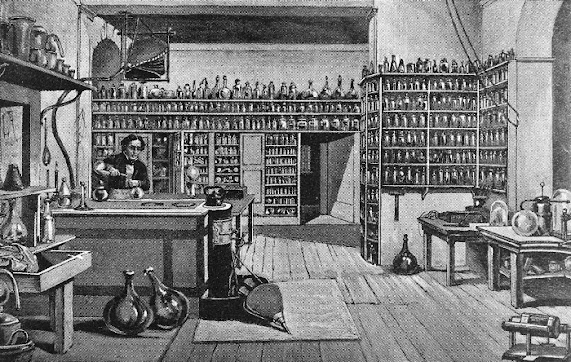The Valley of Unrest
Once it smiled a silent dell
Where the people did not dwell;
They had gone unto the wars,
Trusting to the mild-eyed stars,
Nightly, from their azure towers,
To keep watch above the flowers,
In the midst of which all day
The red sun-light lazily lay.
Now each visitor shall confess
The sad valley’s restlessness.
Nothing there is motionless—
Nothing save the airs that brood
Over the magic solitude.
Ah, by no wind are stirred those trees
That palpitate like the chill seas
Around the misty Hebrides!
Ah, by no wind those clouds are driven
That rustle through the unquiet Heaven
Uneasily, from morn till even,
Over the violets there that lie
In myriad types of the human eye—
Over the lilies there that wave
And weep above a nameless grave!
They wave:—from out their fragrant tops
External dews come down in drops.
They weep:—from off their delicate stems
Perennial tears descend in gems.
Shortly after Poe was court-martialed and formally dismissed from the academy on March 6, 1831, he had written The Valley of Unrest in that same year. The poem explicitly talks about the death of soldiers. Poe had only spent roughly four years in the service and did not see the direct line of action. He specifically prepared shells for the artillery at Fort Moultrie in South Carolina. Poe's exposure to the slice of military life was enough to evoke such a poem as this. The overall military technology and weapons didn't change when he was enlisted. The biggest change beforehand was after the Revolutionary War, where Congress in 1798 established Harpers Ferry in West Virginia to boost weapon and ammunition production, as well as the U.S government began hiring small gun-making outfits to produce gun parts and gun-making outfits.
Lines one through eight describe life while soldiers are away at war, with the peaceful environment. Lines nine through twelve are now in the present, where the environment is no longer as tranquil and soothing, but full of bloodshed. The shells of he artillery Poe made now silence the wind, clear the sky, and lay the blood from those fallen on the ground. Although Poe's military career was short and there was not that much of a change in military technology, it still influenced his writing.



Comments
Post a Comment